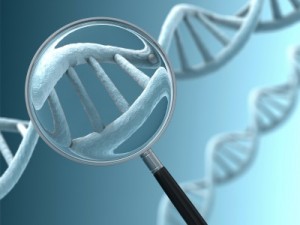 [1]A response to the many queries I’ve been receiving about this topic:
[1]A response to the many queries I’ve been receiving about this topic:
The technological genie is out of the bottle.
We live in the age of Molecular Biology, where diagnostics (including those for Down Syndrome) are becoming much more accurate, sensitive, and inexpensive. It’s a blessed thing to behold.
That may come as a surprise statement to many, but the truth of the matter is that diagnostic testing for Down Syndrome has great potential for good, especially the newer blood tests that can detect Down Syndrome earlier.
First, letting parents know much earlier takes from the more eugenic Ob/Gyn’s the leverage that comes with the more traditional (and later) amniocentesis. Women often receive those tests results within days to a couple of weeks of the legal limit for having an abortion. It doesn’t give the woman time to emotionally digest the diagnosis, leaving her vulnerable to coercive pressure from genetic counselors, doctors and family.
Next, the earlier blood tests allow more time for women to sit with their decision, and to seek out and receive alternative advice without the deadline for abortion looming large on the horizon. Contrary to arguments that say the abortion rate will skyrocket with such testing, as early term abortions are easier to have, one need only consider that research from Harvard University shows that 93% of all Ds babies diagnosed are being aborted; so there’s little margin for any skyrocketing of abortions.
The glass is half-full here.
By itself, the technology is morally neutral. This technology can alert an Obstetrician to the need for more sonograms and the need for bringing onboard a perinatologist. Some Ds babies have anomalies that require immediate surgical intervention at birth. Early diagnostics can help to determine whether the birth should be vaginal or C-section, and whether or not a surgical team needs to be on standby.
Early diagnostics can help the parents emotionally come to terms with the reality of their child’s needs, and the unanticipated trajectory those needs will put the parents’ lives onto; all of which is critical for bonding.
Receiving a diagnosis of Down Syndrome is akin to the same reception of a diagnosis of autism. It’s like a small, tactical nuclear warhead exploding amidst the landscape of joyful reveries about our children and our hope for their futures. I was devastated by all of Joseph’s diagnoses, and would never want to repeat that experience.
Knowing the devastation that often comes with such diagnoses is key to helping parents through that difficult time, and the earlier the diagnosis, the more time we have to help them.
With so much potential good that can come from this technology (and so little room for matters to get worse), it is unwise, even counterproductive to fight against it. Science has actually given us a buffer zone.
We need to exploit it.